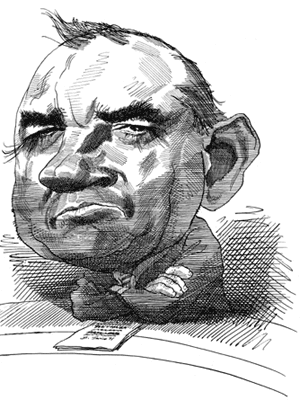In response to:
Demagogue Without a Cause from the June 8, 2006 issue
To the Editors:
In his review of Tom Wicker’s Shooting Star: The Brief Arc of Joe McCarthy [NYR, June 8], Anthony Lewis identifies John G. Adams, the department counselor to Secretary of the Army Robert T. Stevens, as the “key figure in the downfall of McCarthy.”
Lewis’s recognition of Adams’s role is rare. It is also astute, as I can aver from my service as an assistant to Adams before and during the 1954 Army-McCarthy hearings. But Adams paid sorely for his actions, a classic case of the old saw that no good deed goes unpunished.
Adams was prescient about this. When he returned to our offices from the White House where Attorney General Brownell and President Eisenhower’s chief of staff, Sherman Adams, instructed him to prepare a chronology of his meetings with McCarthy and Roy Cohn (McCarthy’s chief counsel) and their threats to the Army, John Adams was visibly shaken. He correctly predicted that he would be fired, a prediction he renewed when the chronology became big news and precipitated the hearings. Adams’s chiefs in the higher reaches of the Eisenhower administration—who were directly responsible for what he did over many months—now found him radioactive.
Unable to find a job after the Army, Adams worked alone for years as a “Fifth Street lawyer,” near the low end of the Washington legal profession. But he rehabilitated himself, in part because of increased recognition of his role in Joe McCarthy’s demise. Eventually he served on the Federal Communications Commission and wrote a useful memoir of his service as Army counsel.
A major reason for Adams’s lack of recognition is that he was overshadowed by the Army’s special counsel, Joseph Welch, who represented the Army during the hearings. As the world saw, Welch was a master of rhetoric, wit, and timing. Moreover, he was a rare admired notable who was even wiser and kinder than his public persona suggested.
After the hearings, Senator Joe McCarthy was censured (“condemned” was the word used at Vice President Nixon’s insistence) by the Senate in December 1954, leading to his loss of influence, drunkenness, and early death. But McCarthyism as a political movement persisted for many years as a blight on American society.
Norman Dorsen
New York University School of Law
New York City
This Issue
November 2, 2006




